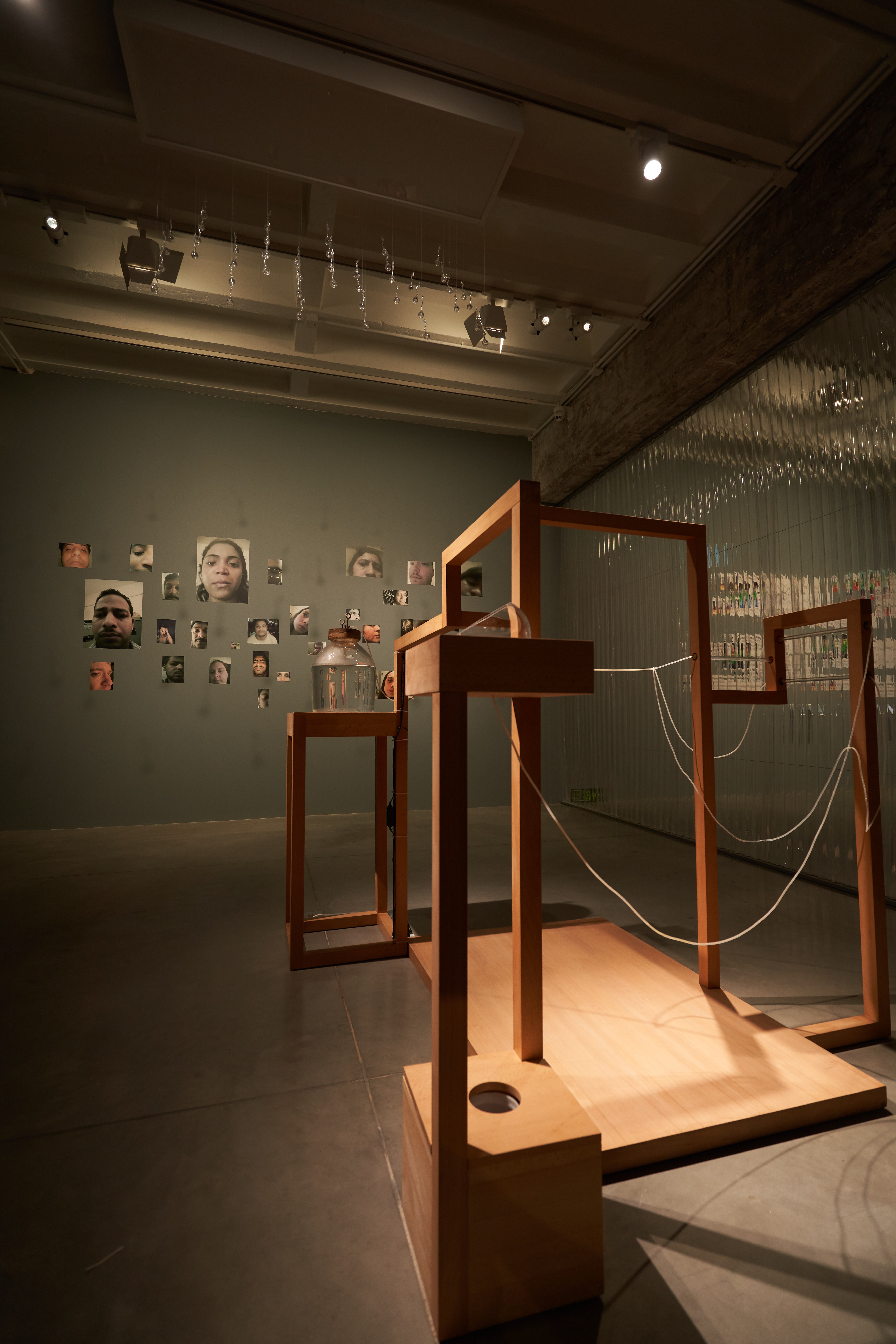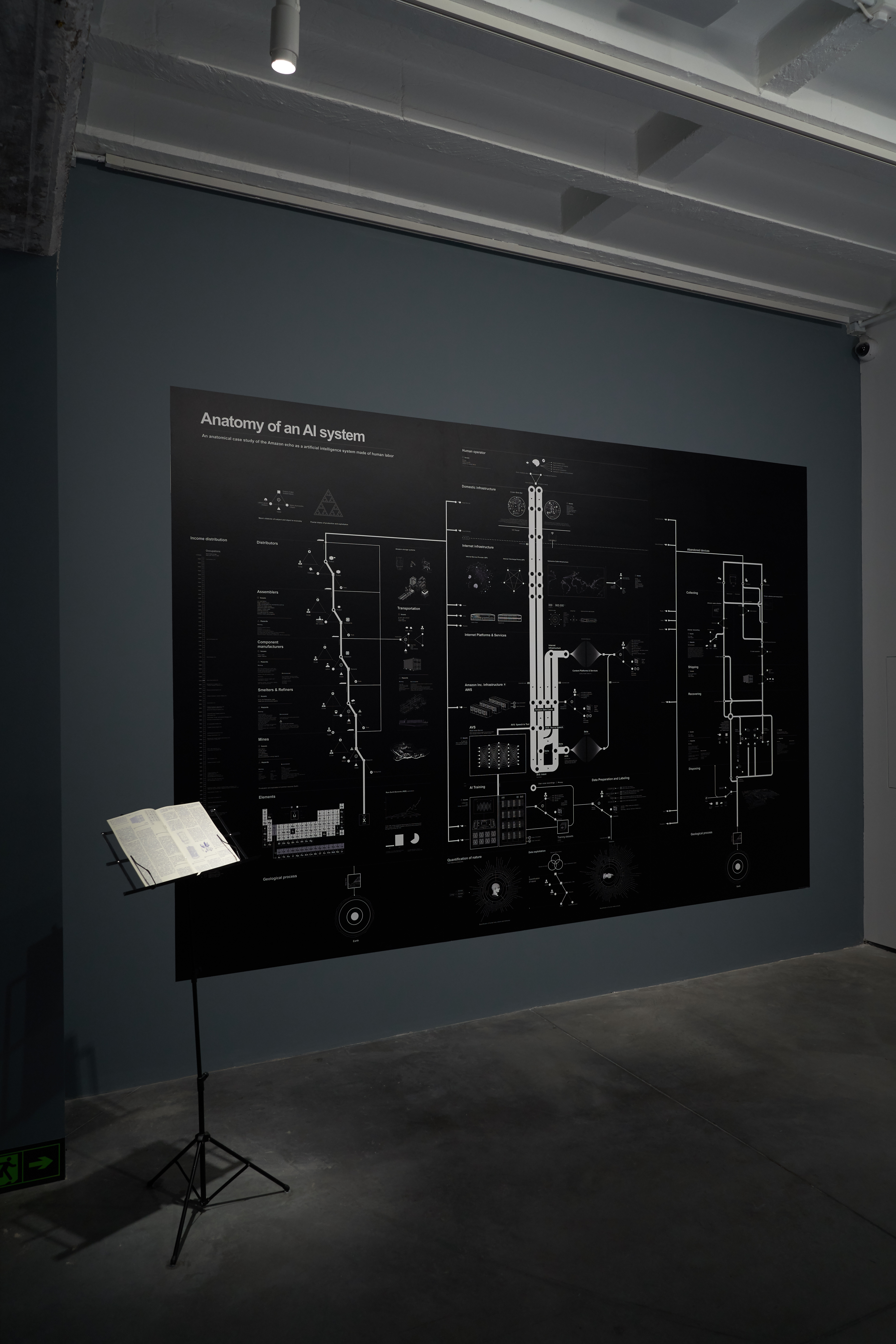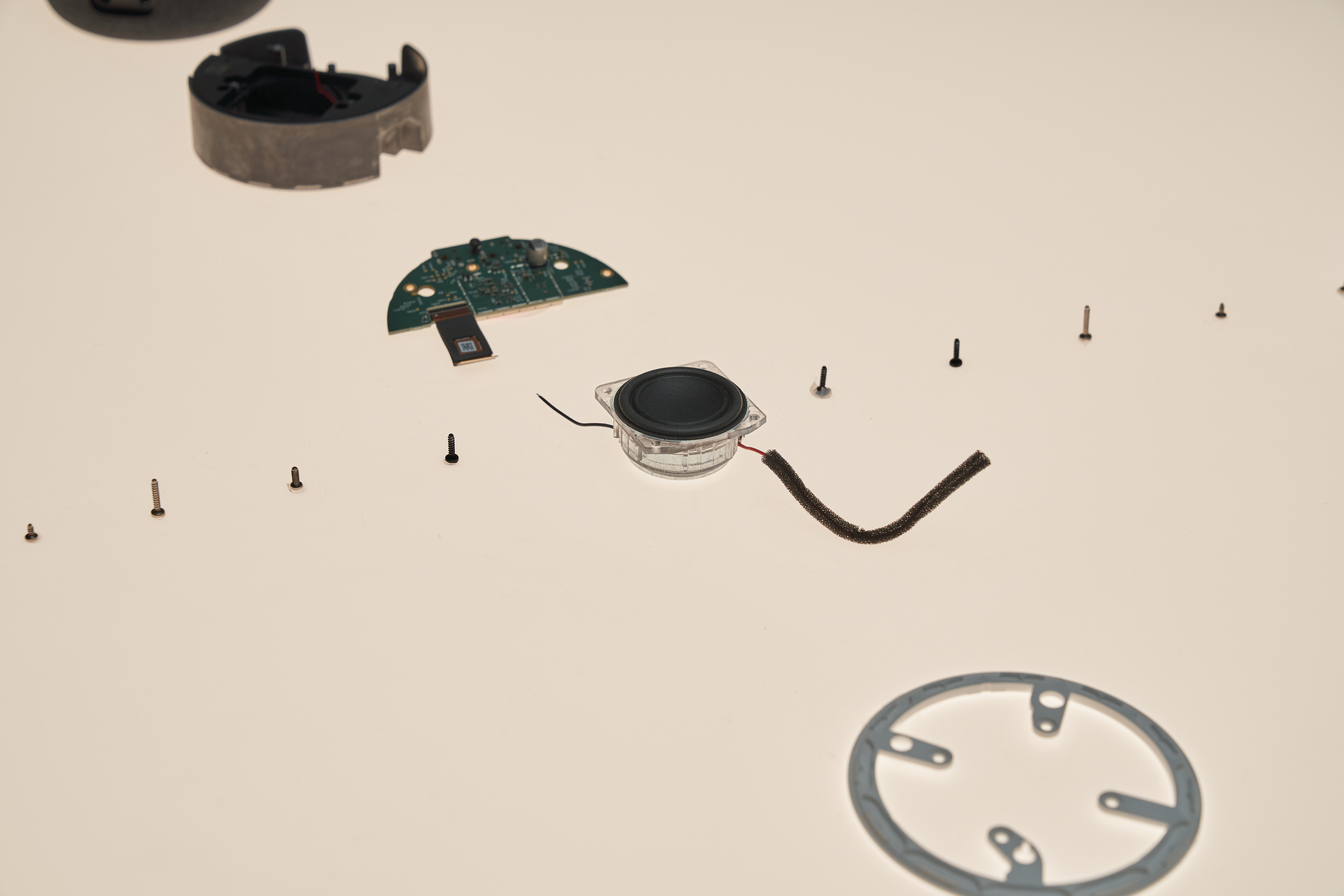LYING SOPHIA & MOCKING ALEXA
撒谎的索菲亚和嘲讽的艾莉克莎
12 JULY 2019 - 21 OCT 2019 
| 策展人 CURATORS | 龙星如 Iris LONG |
|---|---|
| 艺术家 ARTISTS | Christian “Mio” Loclair, ZHANG Wenxin, Anna Ridler & Daria Jelonek, HE Zike, LIU Xin, Payne ZHU, Jake Elwes, Philipp Schmitt & Stephan Bogner, LarbitsSisters, Kyle McDonald, Kate Crawford & Vladan Joler, SUN Xiaoxing & HU Yanjun |
| 主办 ORGANIZER | 现代汽车文化中心 Hyundai Motorstudio Beijing |
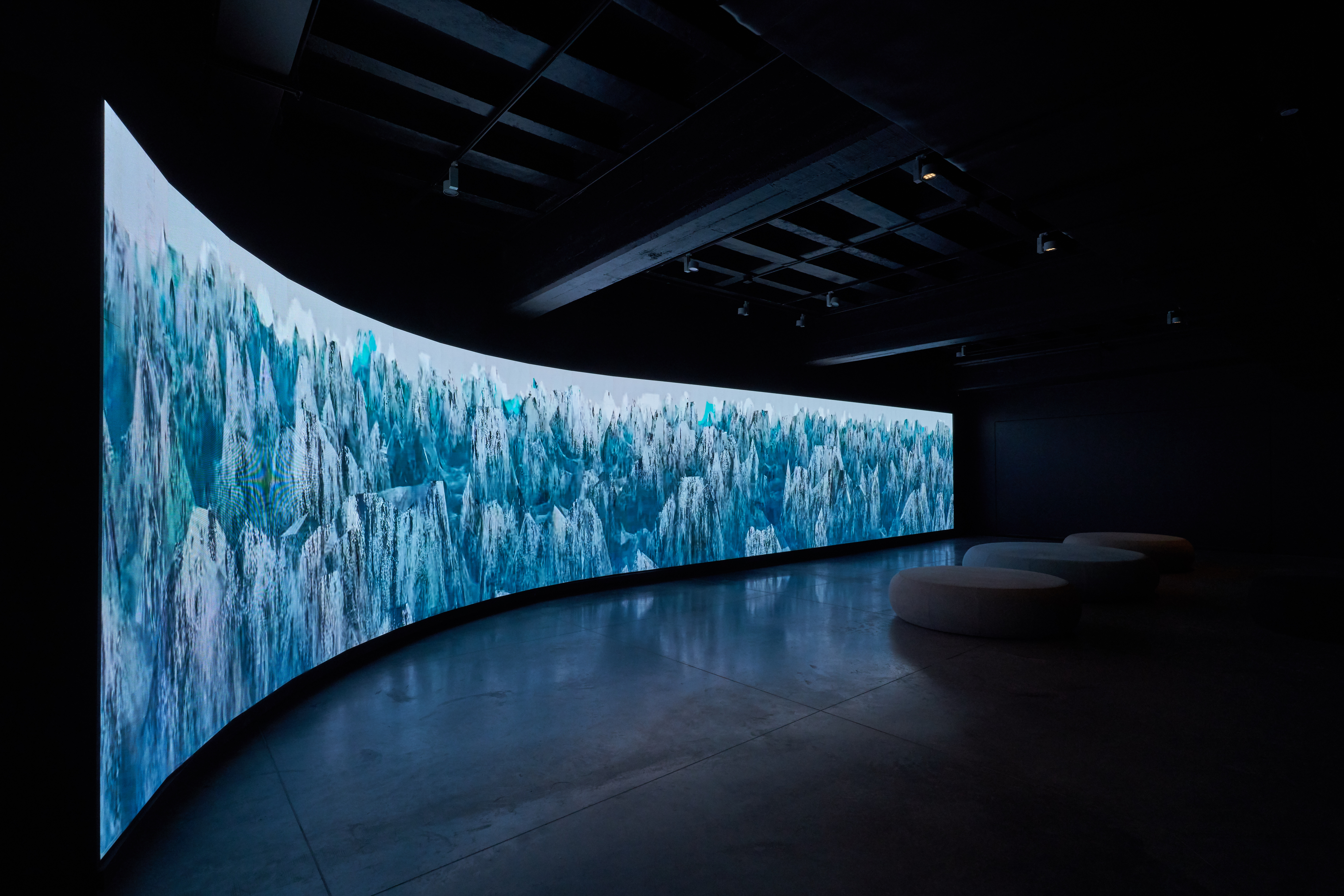
被授予沙特国籍的机器人“索菲亚” 被阐释为媒体和技术企业撰写的暧昧骗局。亚马逊的智能助手艾莉克莎(Alexa)屡次被录下发出“可怖笑声” 的瞬间,一时成为风行于YouTube 的都市传说。
“艾莉克莎” 和“索菲亚” 像是关于机器生命的两个当代隐喻,两块安插在人工智能庞杂话题间的薄片。索菲亚象征媒体和影视里对AI 具有高度拟真容貌、机敏回复力,甚至懂外交的想象——一个行走于我们之间的类人。艾莉克莎是拥有机器外形、存活于私家角落的“助手” 或“仆从”,它的笑声象征关于AI “黑盒” 之不透明、不可规训和潜在窥伺、颠覆的面向——一个需要被修正的错误。
索菲亚的谎言是诗意想象的投射,艾莉克莎的嘲讽是算法黑箱的裂痕,她们共享一种不明朗的处境,犹如《潜行者 》(塔可夫斯基)里的“区” (La Zona)。在科技更迭里,我们很少遇见像AI 一样内含重重悖论,刺激心智,进而指向未来多种可能的课题。哪怕今天AI 已经普世地运用于芯片、处理器、数据收集与分析层面,形成全球技术竞争的新前线,对一个普通人来说,它依然不直接可知、模棱两可,是一个在大众媒体的信息包裹里最好讲也最难讲的故事。
在塔可夫斯基的脚本里,潜行者带着作家与科学家坐缆车,躲过警察追击,穿过滴水隧道,绕过充满沙丘之屋,才接近了“区” 的核心:一个信念成真的房间。作家恐惧于它所暗示的卑陋人性,而科学家希望摧毁房间以免它为恶人所用。展览建构的“区” 犹如今天我们的处境,是科学和文艺同时失去独裁力的架空之所,充斥着“作家”们与“科学家”们的喋喋不休。
展览邀请的艺术家与研究者兼容了索菲亚(光明、诗歌、媒体想象)与艾莉克莎(阴翳、黑盒、技术批判)的视角,探讨AI 对全球技术政治洗牌、其涉及的资源和地质改造、量化感情的荒诞、用真人训练“人性”算法的黑色劳动、投射人类整体精神建筑的动因、AI 的媒介化包装等议题。
索菲亚与艾莉克莎两个角色,也化身人工智能程序所生成的文本及声音,以“对话”的形式贯穿展览。穿越展览的过程如一场“潜行”,它交织着心理世界的饱满、无法计算与一线生机。我们正在经历的一切,究竟会如黑洞的事件穹界一般“打破所有预言”(弗诺· 文奇),还是“我们犯过的最大错误”(史蒂芬· 霍金)?
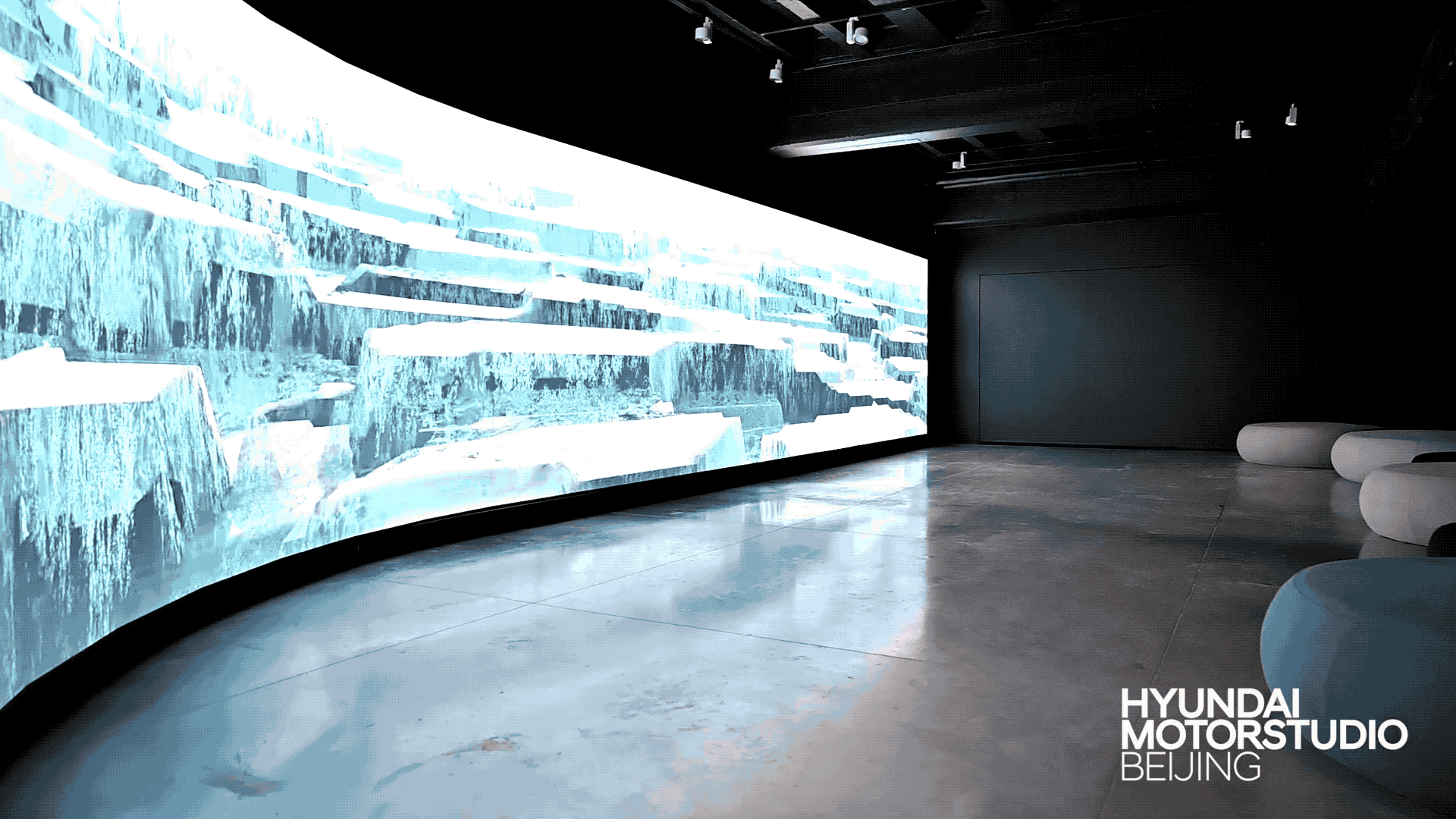
Sophia, the humanoid robot who became a Saudi Arabian citizen is interpreted by many as a story intertwined with elements of ambiguity and deception co-compiled by the mass media and technological companies. Alexa, the cloud-based virtual assistant developed by Amazon, was reported about unsettlingly letting out eerie laughters, which soon became viral on YouTube.
Sophia and Alexa seem to be two contemporary metaphors on machine lives, two thin slices interposed among the imbricated discourses on artificial intelligence. Sophia symbolizes the imagination on AI casted by the mass media, films and televisions: highly human-imitating appearances, alert and responsive, and even diplomatic - a quasi-human being embedded within us. Alexa, on the other hand, is an “assistant” or “servant” who takes a machine outlook and resides in domestic corners, whose laughter implies the non-transparent, anti-regulating, even peeping, subversive dimension of the artificial intelligence black box - even a “mistake” to be amended.
Sophia’s lies are projections of poetic imaginations, Alexa’s mocking is glitches on the algorithmic black box, what they share in common, is a quantum-state like scenario of uncertainties, as if the “La Zona” in Andrei Tarkovsky’s Stalker. In the alternations and evolutions of technologies, we’ve rarely encountered such subject as the artificial intelligence: it’s paradoxical, mind stimulating, and implies manifold future potentials. Even AI has been ubiquitously employed by microchips, processors, data mining and analysis, forming the new frontier of a global technological competition, it remains imperceptible and equivocal to a normal citizen - wrapped within the information on mass media, AI has transformed into a story both the easiest to tell, and the most difficult to narrate.
In Tarkovsky’s script, the stalker guides writer and a scientist to take a cable car, steer by the policemen’s chase, traverse tunnels of dripping water, detour rooms filled with sand dunes, and finally approximate the core of “La Zona”: a “Room” that makes beliefs true. The writer concerns about the dark human nature the Room suggests, while the scientist wishes to destroy the Room in case villains would take advantage of it. The exhibition sets up a metaphorical “La Zona” which embodies our contemporary situation: a time-space where both science and art are simultaneously deprived the power of autocracy and believing narratives, and filled with the writer and the scientist’s chattering.
Artists and researchers involved in this exhibition blend perspectives of Sophia(bright, poetic, media imagination) and Alexa (dark, black-box, technological criticism), they investigate how AI shuffles global technical politics, reconstruct the earth’s geologies, the absurdity of quantifying human emotions, the dark, inhuman labor (in exhausting fashion) to train “human-like” algorithms, incentives to project the entire human spiritual architecture on one single technology form, and the fairy-tale building on AI conducted by mass media.
“Sophia” and “Alexa” are embodied in the exhibition by text and sound generated by AI algorithms, and weave through it as dialogues. Walking through the exhibition is as if in “stalker”, it interweaves the richness, non-computability and vitality of the psychological world. Would all we are experiencing as a whole “break all the prophecies”, like the event horizon in Vernor Steffen Vinge’s assertions, or be “the biggest mistake we have ever made” in Steve Hawking’s alerts?
